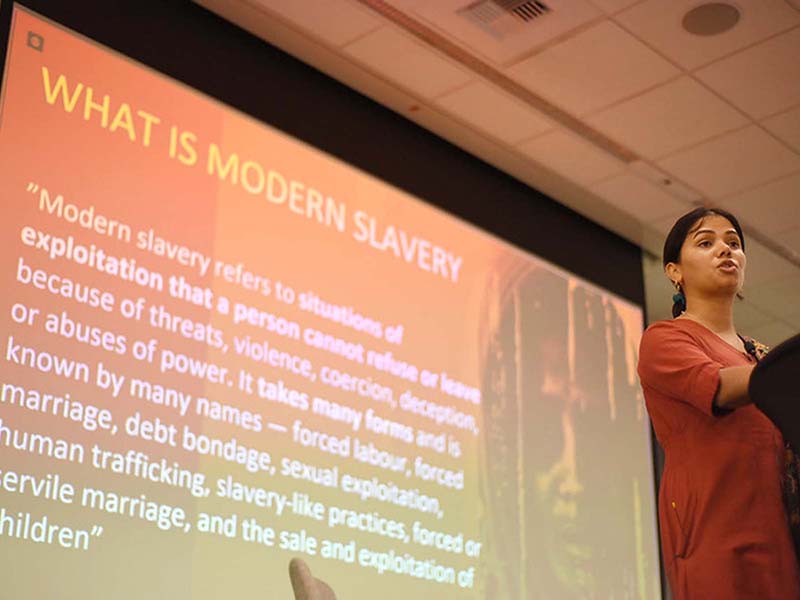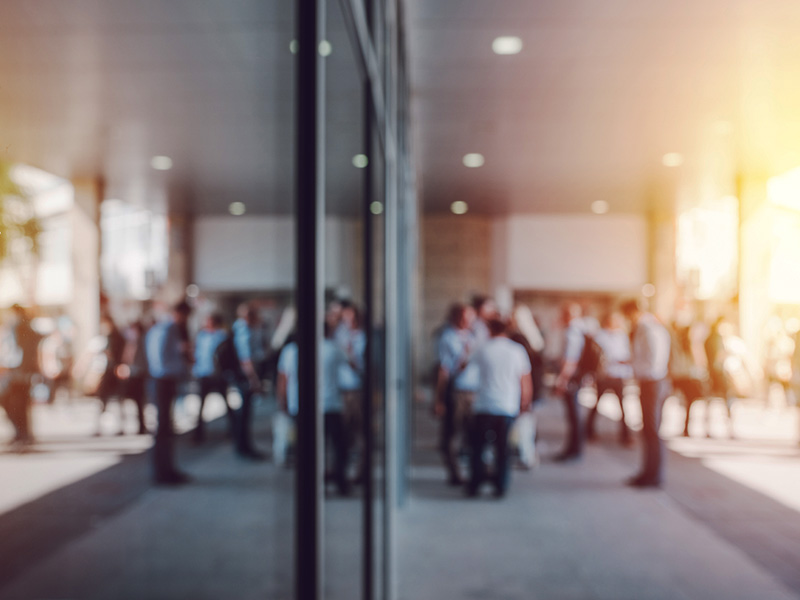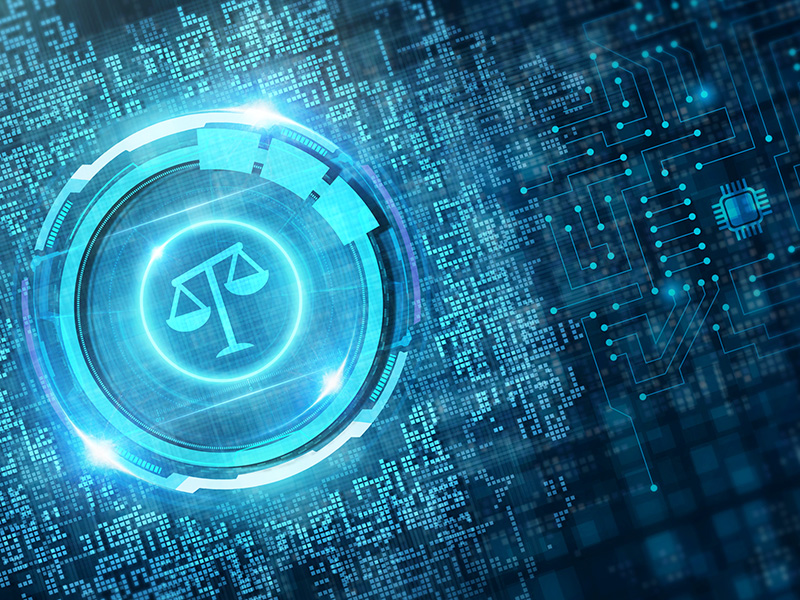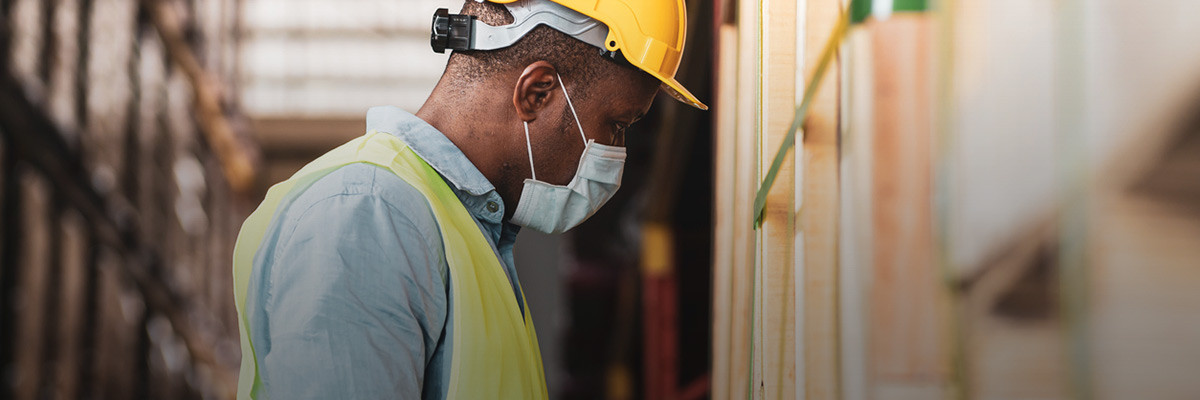
Authors
-
Kelly Scott
Former Manager, Human Rights, BSR
-
Céline da Graça Pires
Former Manager, BSR
-

Associate, Marketing and Communications, BSR
In the almost six months since the World Health Organization (WHO) declared COVID-19 a global pandemic, the most vulnerable and marginalized have been and will continue to be the hardest hit amid increasing infection rates and deepening economic recession. Indeed, the pandemic has exposed the ever-widening gap between rich and poor across the globe. In addition, recent events, such as the Black Lives Matter (BLM) protests following the brutal killing of George Floyd by four police officers in the United States (U.S.), have shone a spotlight on the long-standing racial injustice and discrimination faced by people who are Black, Indigenous, and People of Color (BIPOC), not just in the United States but in many other parts of the world.
It is therefore no surprise that BIPOC communities, especially in the U.S., United Kingdom (U.K.), and Latin America, have been disproportionately impacted by COVID-19. This is further exacerbated by socioeconomic and health disparities which create barriers to the realization of their right to health. We have also seen a surge in anti-Asian rhetoric and abuse worldwide as well as social stigma against specific groups due to misinformation about COVID-19 in sub-Saharan Africa. The devastating impacts of the pandemic on the most vulnerable in society are inarguably linked to systemic racism, income inequality, and unequal healthcare systems—issues which cannot be tackled in isolation.
During this health crisis, the business community can play a leading role in protecting the most vulnerable in their operations and supply chains, including their employees and customers, by identifying ways in which they may be impacted and designing approaches to mitigate against potential negative harms. In order to meet the standards established by the UN Guiding Principles on Business and Human Rights (UNGPs), companies are expected to identify the most vulnerable stakeholders in the context of their operations, supply chains, and products and services to understand specific areas of vulnerability to effectively respond to the unique attributes of each vulnerable group.
To support businesses in upholding this responsibility, BSR has released a primer, featuring a three-step approach on how companies can identify vulnerable groups, including BIPOC, and respect their rights in the context of COVID-19.
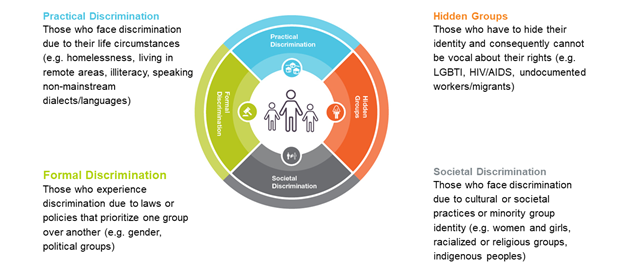
1. Identify Potentially Affected Groups and Understand Their Areas of Vulnerability
As part of any stakeholder engagement process, companies should proactively identify the most vulnerable. Vulnerable groups are most exposed to harm or are at higher risk of experiencing harm, impacted directly and indirectly by company operations, supply chains, products, and services—and BIPOC fall into this category.
BSR has developed a framework, based on the UNGPs and international standards, to help companies to identify vulnerable groups based on four dimensions: practical discrimination, formal discrimination, societal discrimination, and hidden groups.
BIPOC in some countries are more vulnerable as a consequence of socioeconomic and health disparities linked to practical, formal, and societal discrimination. As an example, Indigenous peoples account for 15 percent of the poorest people on the planet, lack proper access to health resources and information, including lack of access to water, fall outside formal social protection systems, and face discrimination in accessing healthcare facilities and treatments, making their communities more vulnerable to COVID-19 impacts.
Given the intersectionality of discrimination, vulnerable groups may be further stigmatized by other factors, for example, sexual or gender orientation or even health status.
2. Understand How Each Vulnerable Group is Impacted Differently by the COVID-19 Pandemic
While vulnerable groups are affected disproportionately by the pandemic, they are not impacted identically. The impacts on BIPOC, however, cannot be understated.
- In the U.K., the Office of National Statistics reported that in England and Wales, BIPOC are at greater risk of dying of COVID-19.
- In the U.S., CDC data show that Black Americans account for more than half of infections and around 60 percent of deaths, despite comprising only 14 percent of the population.
- Brazil has recorded more than 100,000 deaths linked to the pandemic. Structural racism has been a contributing factor to the higher death rates among Black and Brown Brazilians, especially those living in poverty, more so than other populations. Additionally, at least 22,300 indigenous people have been infected, and 633 have died. Voluntary self-isolation in remote regions, such as the Amazon Basin where healthcare services are limited, is therefore critical for cultural survival of determined Indigenous groups who have weaker immune systems.
- In Native communities in the U.S., where health care systems are already underfunded, there are over 9,000 positive COVID-19 cases—a significant number for a community that is just less than 2 percent of the population. In fact, the Navajo Nation has surpassed New York and New Jersey for the most cases per capita.
- Alongside the very serious impacts that COVID-19 could have on their lives and health, some Indigenous peoples are also facing two additional threats: the targeting of Indigenous Human Rights Defenders and illegal land seizure of their traditional lands as consequences of lockdowns and increased military presence in rural areas.
3. Take Appropriate Actions to Minimize Adverse Impacts on Vulnerable Groups
Companies should consider the following actions to prevent negative impacts on the rights of vulnerable groups:
- Take a human rights approach to guide internal decision-making: Since vulnerable groups, including BIPOC, are being hit the hardest, it is necessary to implement inclusive and accessible human rights-based responses to the pandemic while continuing company operations. This involves providing healthcare benefits, free access to testing, personal protective equipment in the workplace, hand sanitation areas, and paid time off if workers experience symptoms and allowing for remote working where appropriate. During this crisis, it may be necessary to make decisions quickly, which is why we released our Rapid Human Rights Due Diligence Tool, intended to guide companies in thinking through pressing challenges.
- Adapt corporate responses to meet the needs of vulnerable groups: Given that BIPOC are overly represented among frontline and essential workforce, companies should proactively and directly engage while it is safe to do so and without putting them at further risk. Engagement must be inclusive, culturally appropriate, transparent, and participatory. For example, many companies are reaching out to their most vulnerable stakeholders through Employee Resource Groups (ERGs). For businesses with operations in close proximity to BIPOC communities, particularly Indigenous communities, companies should prioritize health and safety as well as respect the voluntary self-isolation of high-risk groups. Companies should also ensure the opportunity for Indigenous peoples’ representatives to participate and be consulted on measures that may affect them directly. Companies should provide support to BIPOC workers and ensure that within the decision-making process, BIPOC circumstances and perspectives are considered. Since the trauma of COVID-19 further compounded by racial inequality, companies should also consider enabling access to mental health support and counselling.
- Work collaboratively to design responses to specific areas of impacts on human rights: At BSR, we recognize that these challenges cannot be tackled in isolation but will require multi-stakeholder collaboration. Companies should consider advocating for fairer systems and developing joint action plans with government, the business community, civil society, and affected stakeholders to mobilize support for the most vulnerable. This could include supporting BIPOC-owned businesses and contributing to health and emergency response funds.
As COVID-19 continues to accelerate and the search for a vaccine continues, businesses have an opportunity to prioritize the most vulnerable and address some of the long-standing disparities and inequalities that have afflicted BIPOC communities for generations. Taking action not only means identifying and executing short-term plans and solutions—it also means working toward building a new social contract where no one, including the most vulnerable, will be left behind.
For more information on identifying and respecting the rights of vulnerable groups across your activities and supply chains, please download our primer and reach out.
BSR’s latest sustainability insights and events straight to your inbox.
Topics
Let’s talk about how BSR can help you to transform your business and achieve your sustainability goals.



